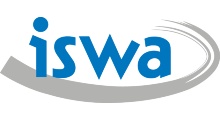

Sustainable Cities, Circular Economy in Sub-Saharan Africa 2024
Welcome to the homepage of our research project SuCCESS24!
“SuCCESS 24” stands for Sustainable Cities, Circular Economy, Sub-Saharan Africa 2024. This joint research project aims to strengthen sustainable development in the Sub-Saharan region using a circular economy approach to develop sustainable and resilient waste management methods. The direct and indirect ways in which the population of this region will be benefited are 1) reduction of greenhous gas emissions and 2) decrease in land degradation and migration respectively. Specific tasks planned and performed during this project to fulfill the above mentioned objectives are recycling of reusable materials, recovery of organic matter, and safe landfilling along with the formal and informal transport logistics.
The project is organized in two modules. In the first module, we deal with system analysis monitoring mass flows of the existing waste systems in Ethiopia and provide local decision makers with a toolkit that aids in moving closer to a circular economy stand.
Academic cooperation is the driver of the second module. Here, the partner universities in Addis Ababa (Ethiopia), Accra (Ghana) and Stuttgart (Germany) come together to impart online lectures and make the supervision of postgraduate (master‘s and doctoral) theses possible. Moreover, students, public sector representatives and industries will present the knowledge gathered from the analysis of Module 1 in the format of workshops, summer and winter schools in Ghana and Ethiopia
Are you interested in being part of our research project? We are happy to hear from you! Contact us!
We are happy about your interest in our research project!
As mentioned before, the first module deals with research, fieldwork, and practical implementation, while the second one focuses on academic collaboration and knowledge dissemination. The subsections of Module 1 are called Work Packages and the subsections of Module 2 are Goals, there are 6 and 5 of them, respectively. A detailed description of each work package and goal is provided below.
Module 1: Research and Module 2: Academic Cooperation.
The modules are interrelated and therefore, the fieldwork benefits from the academic collaboration and scientific research, while the academic collaboration relies on the results and implementation in the field. The implementation of the project is expected to increase the circular economy in the studied area and thereby achieve some of the United Nations Sustainable Development Goals (SDGs). All steps are corelated, and they support and strengthen each other.
The modules are interrelated meaning that the results from field implementations contribute to academic collaboration and in return, this contributes to fieldwork. In this manner, circular economy is expected to start rooting not only in the waste management system of the studied area but also in its citizens. This will help to meet some of the United Nations' Sustainable Development Goals (SDGs).
If you are interested in writing a thesis in the framework of Module 2 and in participating in our workshops, please feel free to contact us. More information about workshops as well as summer and winter schools will be updated soon.
Who are we looking for in SuCCESS 24?
To make this project a SuCCESS, many creative and smart minds are required to contribute to research and the practical implementation for the improvement of measures. Read more about our project partners here.
Projects like SuCCESS 24 have already been implemented in other parts of the world. During a cooperation between the Indo-German Center of Sustainability (IGCS) and the University of Stuttgart, we have fortunately drawn a wealth of experience that makes us capable of further developing the project in sub-Saharan Africa.



















